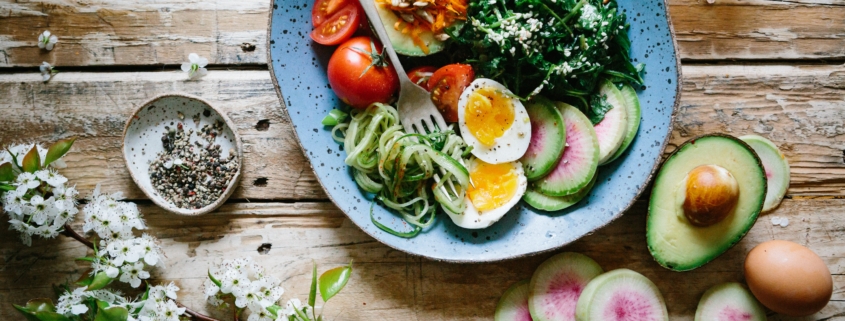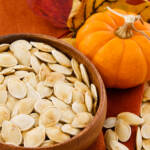Immunity-Boosting Foods
In order to combat feeling under the weather, you may be washing your hands regularly to protect yourself, but did you know that what you eat can help prevent infection and boost your immunity? Today we’re going to take a look at some foods and nutrients that can help you stave off the sniffles!
Immunity-Boosting Foods
- Water – Staying hydrated keeps every cell in your body running smoothly, including the cells that fight infection. Try to drink more water, tea, and other healthy beverages, and include water-rich foods in your meals and snacks, such as fruits, veggies, and soups.
- Garlic – Garlic is often referred to as “nature’s antibiotic”, and with good reason. Allicin is the compound in this pungent ingredient that fights infection. Studies support garlic’s effectiveness in preventing and treating bacterial infections. Add flavor and protection to your cooking with raw and crushed garlic – it’s great with meats, veggies, breads, and sides.
- Chicken Soup – Yes, your grandma was onto something. Chicken soup contains plenty of hot, salty broth to clear your nasal passages, thin mucus, and keep you hydrated. It also contains the amino acid cysteine, which acts like a bronchitis drug to keep inflammation out of your bronchial tubes; so you can breathe easier by eating chicken soup. Adding garlic and onions amps up the immune-boosting power even more!
Immunity-Boosting Nutrients
- Antioxidants – Antioxidants are found in vitamins and plant phenolic compounds, and they stop cell damage in its tracks. Your best bet to get enough is to eat plenty of brightly colored fruits and veggies, which are rich in the antioxidant vitamin C and polyphenols. Both green and black tea also contain these helpful compounds, as well as L-theanine, another immune-booster.
- Probiotics – The “live active cultures” found in yogurt, kefir, sauerkraut, kombucha, and other fermented foods are healthy bacteria that are responsible for up to 90% of your immunity. Some studies suggest that certain strains of probiotics may even stimulate white blood cells. These good bugs keep the gut and intestinal tract free of disease-causing germs. You can also take them as a supplement if you have trouble with the taste of any fermented products. Look for the “Live and Active Cultures” seal on your yogurt to help seal the deal on your own health and immunity!
- Soluble Fiber – Soluble fiber, which is abundant in citrus fruits, apples, carrots, beans and oats, helps fight inflammation and reduces recovery time after bacterial infection. Beta-glucan, found in oats and barley, is a fiber with antimicrobial and antioxidant properties, boosting immunity and helping healing. Make sure you’re getting your whole grains with oatmeal, barley, fruits, and veggies!
Immunity-Boosting Vitamins
- Zinc – Zinc is crucial for white blood cell development. Many Americans are deficient, especially vegetarians, vegans, and those who don’t eat much beef or dairy. Zap your illness with zinc by eating lean beef, oysters, fortified cereals, pork, poultry, yogurt, milk, and seeds.
- Selenium – This mineral helps white blood cells (the body’s defense soldiers) produce cytokines, the “ammunition” proteins that fight viruses such as the flu. Foods rich in selenium include shellfish such as oysters, lobster, crab, and clams, as well as Brazil nuts and mushrooms.
- Omega-3 Fats – These healthy fats, found in oily fish such as salmon, mackerel, and tuna, turn down the dial on harmful inflammation in the body. This helps reduce the daily strain on your immune system and increases blood and airflow to your tissues and lungs, helping them work at their full capacity. Not a fan of fish? Try flaxseed, walnuts, hempseed, or fish-oil supplements to get your daily dose.
- Vitamin A – This vitamin, plentiful in orange veggies as well as dark leafy vegetables, keeps your skin and membranes intact, providing front-line defense against invading bacteria and viruses.
- Vitamin D – This nutrient may help immune cells identify and destroy bacteria and viruses that make us sick. People with sufficient vitamin D recover from illness much faster than those with low levels. Get your vitamin D from fatty fish like salmon and mackerel, egg yolks, fortified milk, and a safe amount of sun exposure.
– By Morgan McManimon-Myers, RDN, CD, LD




